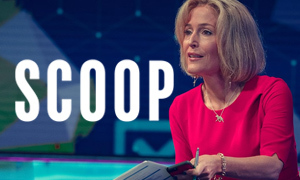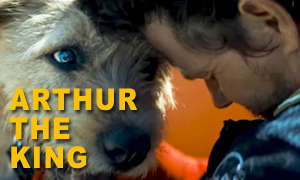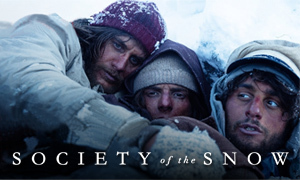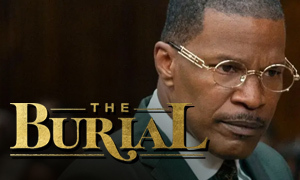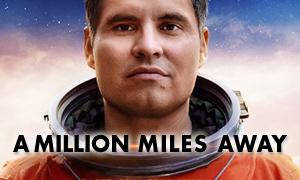The Right Stuff: History vs. Hollywood
Patrick J. Adams
Born: August 27, 1981
Birthplace:
Toronto, Ontario, Canada
John Glenn
Born: July 18, 1921
Birthplace: Cambridge, Ohio, USA
Death: December 8, 2016, Columbus, Ohio, USA
Nora Zehetner
Born: February 5, 1981
Birthplace:
El Paso, Texas, USA
Annie Glenn
Born: February 17, 1920
Birthplace: Columbus, Ohio, USA
Death: May 19, 2020, Saint Paul, Minnesota, USA (COVID-19 complications)
Jake McDorman
Born: July 8, 1986
Birthplace:
Dallas, Texas, USA
Alan Shepard
Born: November 18, 1923
Birthplace: Derry, New Hampshire, USA
Death: July 21, 1998, Pebble Beach, California, USA (leukemia complications)
Shannon Lucio
Born: June 25, 1980
Birthplace:
Denver, Colorado, USA
Louise Shepard
Born: July 3, 1922
Birthplace: Kennett Square, Pennsylvania, USA
Death: August 25, 1998, California, USA (heart attack)
Colin O'Donoghue
Born: January 26, 1981
Birthplace:
Drogheda, County Louth, Ireland
Gordon Cooper
Born: March 6, 1927
Birthplace: Shawnee, Oklahoma, USA
Death: October 4, 2004, Ventura, California, USA (heart attack)
Eloise Mumford
Born: September 24, 1986
Birthplace:
Washington, USA
Trudy Cooper
Born: February 19, 1925
Birthplace: Dallas, South Dakota, USA
Death: March 8, 1994, Houston, Texas, USA
Michael Trotter
Gus Grissom
Born: April 3, 1926
Birthplace: Mitchell, Indiana, USA
Death: January 27, 1967, Cape Kennedy, Florida, USA
Aaron Staton
Born: August 10, 1980
Birthplace:
Huntington, West Virginia, USA
Wally Schirra
Born: March 12, 1923
Birthplace: Hackensack, New Jersey, USA
Death: May 3, 2007, San Diego, California, USA (heart attack)
James Lafferty
Born: July 25, 1985
Birthplace:
Hemet, California, USA
Scott Carpenter
Born: May 1, 1925
Birthplace: Boulder, Colorado, USA
Death: October 10, 2013, Denver, Colorado, USA (stroke complications)
Micah Stock
Born: December 31, 1988
Deke Slayton
Born: March 1, 1924
Birthplace: Sparta, Wisconsin, USA
Death: June 13, 1993, League City, Texas, USA (malignant brain tumor)
Patrick Fischler
Born: December 29, 1969
Birthplace:
Los Angeles, California, USA
Bob Gilruth
Born: October 8, 1913
Birthplace: Nashwauk, Minnesota, USA
Death: August 17, 2000, Charlottesville, Virginia, USA
Eric Ladin
Born: February 16, 1978
Birthplace:
Houston, Texas, USA
Chris Kraft
Born: February 28, 1924
Birthplace: Phoebus, Virginia, USA
Death: July 22, 2019, Houston, Texas, USA
Jackson Pace
Born: February 19, 1999
Birthplace:
Boca Raton, Florida, USA
Glynn Lunney
Born: November 27, 1936
Birthplace: Old Forge, Pennsylvania, USA
Did Alan Shepard arrive late to the first Mercury astronaut program recruitment meeting?
Yes. Of the 110 letters that went out, Shepard was at first worried that he wasn't included. The Right Stuff true story confirms that Shepard's letter did get lost, resulting in him getting it late and only hours before the meeting at Langley.
What's the biggest difference between The Right Stuff movie and the Disney+ TV series?
One of the biggest noticeable differences between the movie and The Right Stuff TV series is the omission of Chuck Yeager in the Disney+ TV series. While Yeager became the first human to officially break the sound barrier in level flight, he was not brought into the Mercury astronaut program. Yeager was portrayed by actor Sam Shepard in the 1983 movie. Season One of the series begins after this period and mostly focuses on the Mercury Seven astronauts and their wives. To learn more about Chuck Yeager and his role in the movie, watch the video below. For our latest episodes, follow us on YouTube.
Is The Right Stuff TV series based on the 1983 movie of the same name?
No. Like the movie, the Disney+ series is based on Tom Wolfe's thoroughly researched 1979 book, which focuses on a group of test pilots involved with high-speed, rocket-powered aircraft. The book also follows a number of these men as they are selected to become the first Project Mercury astronauts. As part of his research, Wolfe interviewed the astronauts, the test pilots, and their wives. Future seasons of The Right Stuff series will follow through to the 1969 Apollo 11 moon landing.
Did John Glenn's wife have a stuttering problem?
Yes, The Right Stuff fact check reveals that Annie Glenn had an 85% stutter. It had largely prevented her from being able to talk on the phone and communicate effectively. After participating in a speech therapy retreat, her ability to verbally communicate improved. She called her husband on the phone to share the good news. Annie became a lifelong advocate for people with communication disorders. In her 80s, she fulfilled her dream of becoming a teacher when she was a lecturer at Ohio State for a speech and hearing class.
Did Gordon Cooper cheat on his wife, Trudy Cooper?
Yes. Like in the TV series, The Right Stuff true story reveals that Gordon Cooper had a prolonged affair with a married woman. In fact, his wife Trudy had left him four months prior to the astronaut selection process. However, during the selection interviews, he lied and said that he and Trudy had a healthy and stable marriage. Understanding what a scandal would mean for himself and the astronaut program, he convinced Trudy to pretend that they were happily married. She agreed, not wanting to deny herself or her daughters the experience of seeing their father go into space. Not long after Gordon Cooper retired from NASA and the USAF in 1970, he divorced Trudy.
Was Trudy Cooper a pilot?
Yes. In exploring The Right Stuff TV series' historical accuracy, we learned that Gordon Cooper's wife Trudy was a licensed and accomplished pilot. Like the other wives, more of her story is focused on in the TV show The Astronaut Wives Club (2015).
Did all of the astronauts live like rock stars?
According to Tom Wolfe's book, all of the astronauts except for John Glenn took advantage of their rock-star status. Glenn lived like a monk. He had worked long and hard to maintain a good public image. He stayed in shape by running on the beach and was the most focused of the astronauts. This isn't to say he didn't find any enjoyment in fame. He appeared for three straight weeks on the game show Name That Tune, offering fatherly advice to his 10-year-old partner on the show. Glenn was indeed angry over the wild behavior of his fellow astronauts.
Were John Glenn and Alan Shepard fierce competitors?
Yes. Not only were they highly competitive with each other, their attitudes on life were largely different. Glenn was moralistic and strived to live an exemplary life. Shepard was more carefree and fit the stereotype of a cocky young pilot. All of the Mercury Seven astronauts wanted to be selected to pilot the "first flight of the bird," in this case referring to the first rocket into space. When Alan Shepard was selected, John Glenn was devastated.
How many test rockets blew up on takeoff prior to Alan Shepard's historic flight into space?
A total of 21 test rockets had blown up prior to Alan Shepard's May 5, 1961 launch. As a result, things were really that tense on launch day. Fortunately, the Mercury-Redstone 3 rocket named Freedom 7 that carried Shepard lifted off successfully.
Did Alan Shepard urinate in his spacesuit because of having to wait so long to take off?
Yes. Our research into The Right Stuff fact vs. fiction confirms that on May 5, 1961, the day that astronaut Alan Shepard became the first American to fly in space, he was forced to relieve himself in his spacesuit while waiting on the launch pad. He had been delayed for roughly four hours due to weather and various mechanical concerns. Mission control told him to go ahead and pee in his spacesuit. Since he was sitting and facing upward, angled back slightly, the urine ran up his body toward his head, eventually pooling in his back. Along the way, the warm urine set off a suit thermometer sensor, causing an increase in Freon flow (from 30 to 45), which was used to cool the suit when necessary. It also partially knocked out his left lower chest sensor that had been recording his electrocardiogram.
Did John Glenn's wife Annie really turn down a televised visit from President Lyndon B. Johnson?
Yes. John Glenn's launch aboard the Atlas rocket was delayed several times. First, a monkey was sent up to test the rocket. Then, Glenn was delayed again when the weather turned bad. In a PR stunt, President Lyndon B. Johnson was going to visit John Glenn's house to comfort his wife Annie on national TV. However, she refused to let Johnson in. When NASA called Glenn and demanded his wife let Johnson in the house, Glenn never wavered. The answer was no. The public was unaware of Annie Glenn's severe stutter, and she didn't want them to find out on a nationally televised broadcast.
On February 20, 1962, the launch of Mercury-Atlas 6 was successful and John Glenn became the first American to orbit the Earth in space.
Did Gus Grissom really freak out and blow the hatch on the capsule?
Both the 1983 movie and the book leave this question open-ended, other than depicting Grissom in a frazzled state, either from denial, nearly drowning, or shock that the Liberty Bell 7 capsule was lost. In real life, while the helicopter was attempting to hook onto the capsule floating in the water, Grissom was to wait until he got word to blow the newly designed explosive hatch. Grissom maintained that he didn't hit the detonator button early, either accidentally or on purpose. He said that "suddenly, the hatch blew off with a dull thud."
As water began to flood the cabin, he scrambled out of the capsule and into the sea. Believing he was okay, the helicopter tried to hook on and save the capsule, but it had taken on too much water through the open hatch. Grissom's pressure suit lost air and started to fill with water through an open oxygen valve he forgot to shut during his hurry to get out. He flailed around waving for help, and initially, the second copter crew believed he was waving hello. When they finally got him out of the water, he was shaking and his eyes were darting. He was clearly in a state of panic. Once on the aircraft carrier Randolph, Grissom kept saying, "I didn't do anything. The damned thing just blew." Grissom worked with NASA to recreate what might have happened in the capsule. Tests revealed that it would be near impossible for the hatch to "just blow." Even if he was swinging his arms around, it was highly unlikely that he would have accidentally hit the button to blow the hatch.
Grissom, who died in 1967 in the tragic Apollo 1 pre-launch fire, always stood by his initial claims regarding the 1961 incident. "I was just laying there minding my own business when, POW, the hatch went," he stated at a press conference shortly after his return. However, some in the media speculated that he panicked and blew the hatch early because he feared that the capsule was going to sink. Even after the Liberty Bell 7 capsule was finally recovered from the ocean floor in 1999, it did not provide any concrete answers as to what might have happened. The film in the camera that had recorded the inside of the capsule during touchdown was too damaged to be salvaged.
Several theories emerged that supported Grissom's account. The co-pilot of the helicopter, who had the job of snipping an antenna on the capsule before the helicopter could latch onto it, said that he remembered seeing a static arc flash between his cutting pole and the capsule right before the hatch blew, which could have triggered the explosives. There were other theories as well, including that the hatch's T-handle could have been yanked by a stray parachute line or was damaged by the heat of re-entry.
How many astronauts lost their lives during the Mercury and Apollo space programs?
As seen in The Right Stuff TV series, both testing for spaceflight and spaceflight itself were extremely dangerous. In researching The Right Stuff true story, we learned that the Mercury and Apollo space programs claimed the lives of nine astronauts.
Theodore Freeman (NASA Astronaut Group 3) died on October 31, 1964 after a goose struck the T-38 jet trainer he was flying as he approached Ellington Air Force Base near Houston, knocking out both engines. Freeman ejected too close to the ground for his parachute to open effectively.
Elliot See and Charles Bassett, who were part of Gemini 9, died on February 28, 1966 when their T-38 jet crashed into an aircraft factory as they tried to land at Lambert Field in St. Louis in bad weather.
Apollo 1 astronauts Virgil "Gus" Grissom, Ed White and Roger B. Chaffee lost their lives on January 27, 1967 when an electrical fire spread quickly in the pure oxygen atmosphere of the cabin during a pre-launch test at Cape Kennedy, Florida. Their deaths were also chronicled in the 2018 movie First Man starring Ryan Gosling.
Clifton C. Williams (Apollo) died on October 5, 1967 when the T-38 jet he was piloting encountered mechanical failure after departing from Cape Kennedy, Florida bound for Houston. Williams ejected but was too low to the ground.
Michael J. Adams lost his life on November 15, 1967 as the result of control failure during his seventh flight in the X-15 experimental spaceplane. Adams had been flying at an altitude of above 50 miles.
The first African-American astronaut, Robert Henry Lawrence Jr., died on December 8, 1967 when his F-104 Starfighter jet crashed when he was practicing several quick-descent, high-speed landings with Major Harvey Royer. Both men ejected but Lawrence's ejected seat's parachute never fully deployed.
Several non-astronauts also lost their lives due to accidental rocket explosions on the ground.
